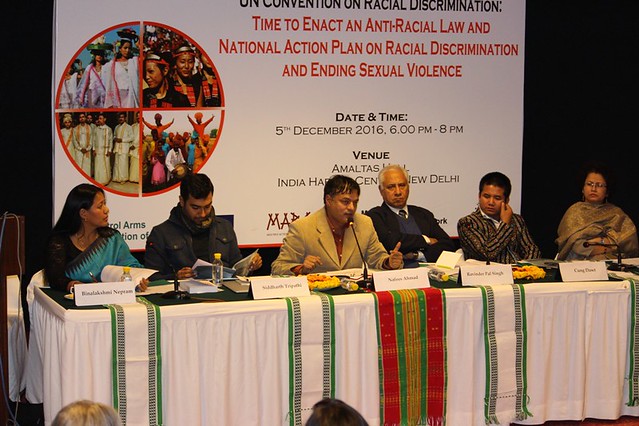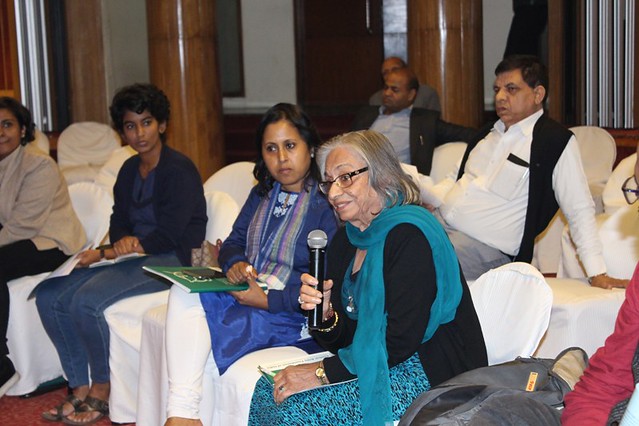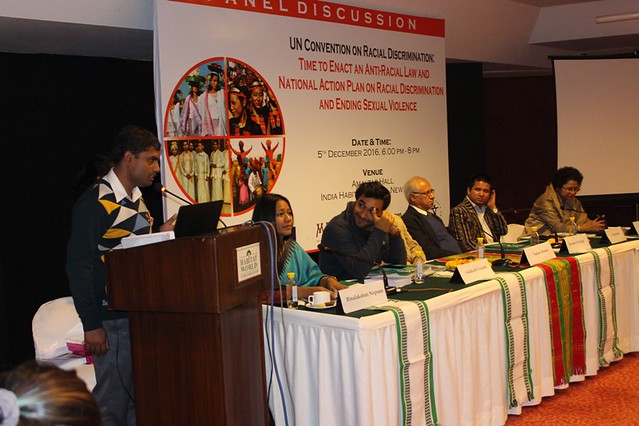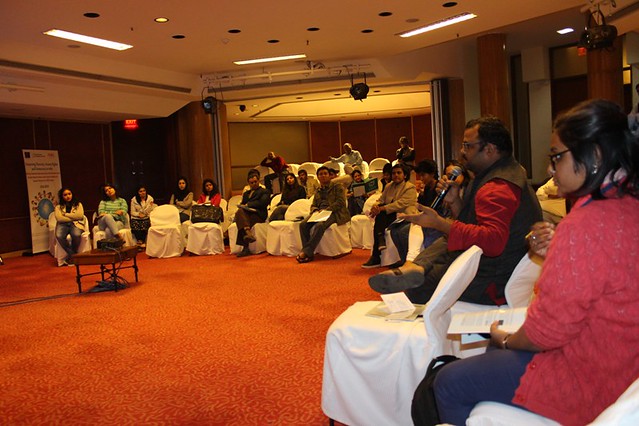By TCN News
New Delhi: Control Arms Foundation of India in collaboration with Multiple Action Research Group and India Habitat Centre successfully conducted a panel discussion on UN Convention on Racial Discrimination: Time for India to Enact an Anti-Racial Law and National Action Plan on Racial Discrimination and Ending Sexual Violence on December 5, 2016 at the India Habitat Centre, New Delhi.

Binalakshmi Nepram, Founder, Manipur Women Gun Survivors Network and General Secretary, Control Arms Foundation of India, speaking about the event said that the objective of the event is to unravel the issue of racism as well as ending sexual violence and act on it soon.
Further she highlighted that after the Nirbhaya case in 2012 and the formation of an Anti-rape law, rape in India has increased. Lives of young infants as young as 3 months old are not secured. Every 22 minutes, a girl child, woman or a young boy is sexually assaulted.

Anju Talukdar, Director, Multi Action Research Group, said that crime against women has doubled but the conviction rate has dipped. Recently, the conviction rate of rape is only 25%. Huge problem is with prosecution. Indian legislature only identifies rape by strangers as a crime although she noted that 95% of rape cases are not done by strangers. In this situation, Legal reforms are not the actual problem but the implementation of it.

Racism is not in the narrative but it is very much in the attitude and behaviour of the people. People cannot keep going to the high courts, and therefore there should be a statute in place. Legal reforms are a must. Lastly, she stressed that the start should come from us because as a democracy every good law in India comes from people.
Nafees Ahmad, Assistant Professor, South Asia University, talked about reasons why we need an anti-racial law and said that implementation is a major problem, denial of CEDAW cannot be accepted. He questioned what the national government has done in this regard. They have ignored the Northeast of India and negated multiculturalism. And added that it is only with political motives and during election period, the issue of racism is picked up. Further he suggested, calls for a change in law enforcement agencies, change in legislature – both prevention and protection, change the education system, in order to understand the nation inculcate the history of Northeast India.

The discussion zeroed in on working on the following points to address the racial discrimination issue:
1. The need for research to define the parameters of race and racial discrimination in India.
2. Awareness raising campaigns to comprehend discrimination in institutions and in everyday life.
3. Intensifying public education to incorporate tolerance and promotion of respect for other ethnicities.
4. Increased political participation in state of the marginalized societies.
5. A separate law which addresses the various socio-cultural-political and economic types of discrimination.
6. The need for accountability of law enforcing agencies.
7. Mechanisms to increase reporting, investigation, documentation and monitoring of cases of racial discrimination.
8. Programmes to provide reparations for the victims of racial discrimination.
9. Training programmes for public officials.
10. A National Diversity Policy against Racial Discrimination as an alternative plan to address racial discrimination.
